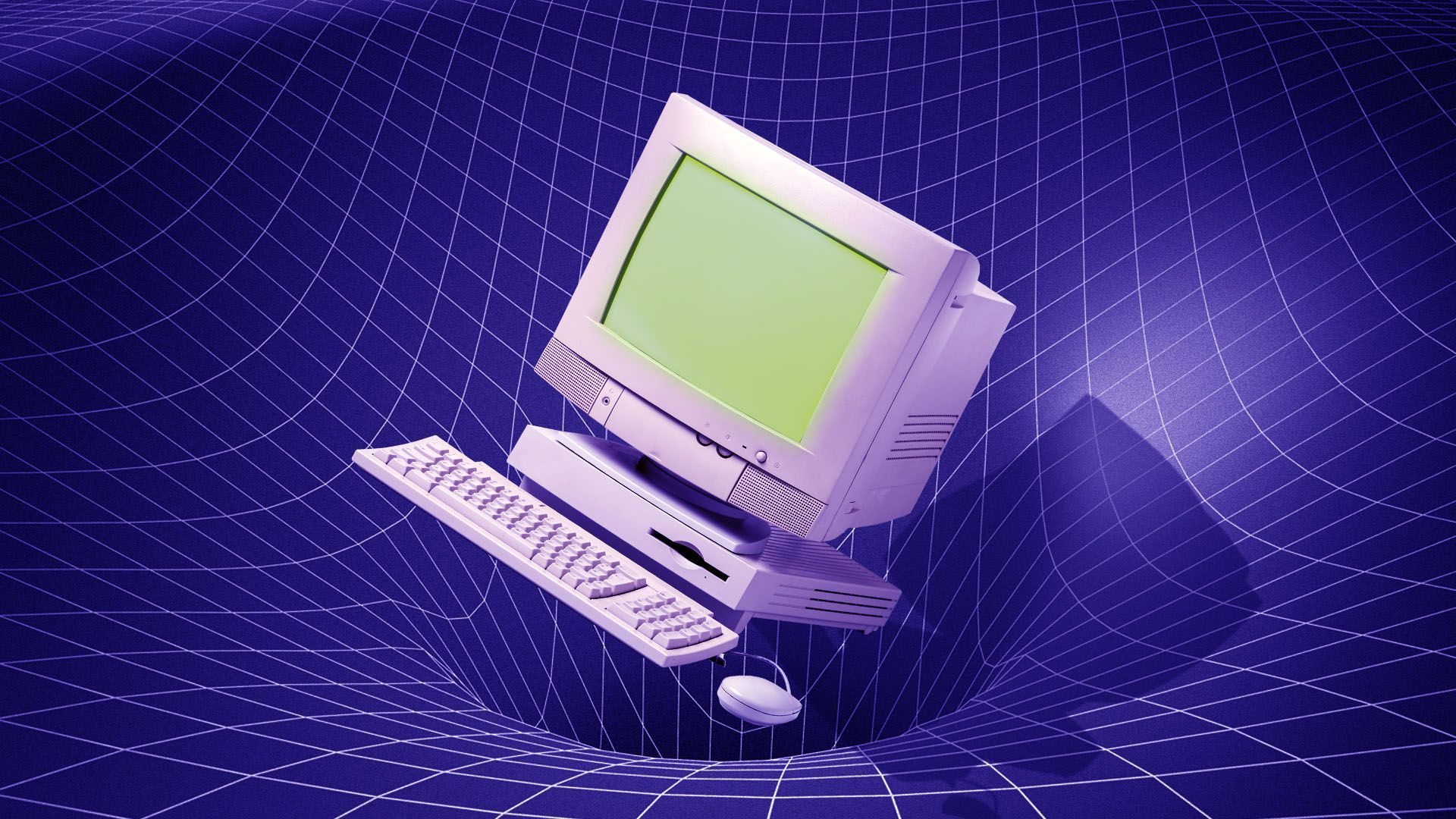Making quantum computing useful
Add Axios as your preferred source to
see more of our stories on Google.

Illustration: Sarah Grillo/Axios
New research shows how quantum computing can be used effectively on real-world problems.
The big picture: Quantum is undoubtedly the next frontier in computing, but theory still outpaces practice.
What's happening: In a paper published in Nature Communications this week, researchers from the quantum computing company D-Wave and Google demonstrated that D-Wave's system could simulate a programmable quantum magnetic system more than 3 million times faster than corresponding classical methods.
Why it matters: The problem the study tackles — which has its roots in research that won the Nobel Prize for Physics in 2016 — is taken from the real world, albeit the highly complex real world of exotic matter.
- "This isn't some made-up example that is only designed to showcase the DNA of a quantum computer," says Andrew King, director of performance research at D-Wave.
Between the lines: The research also demonstrated one of the advantages of quantum computing: its ability to more accurately simulate reality, which will be useful for material sciences and optimization problems in logistics.
The catch: Quantum computers are still too error-prone and finicky for wide use, and just last week, a Microsoft researcher announced that he would need to retract a 2018 paper that had provided much of the scientific foundation for the company's quantum computing efforts.
